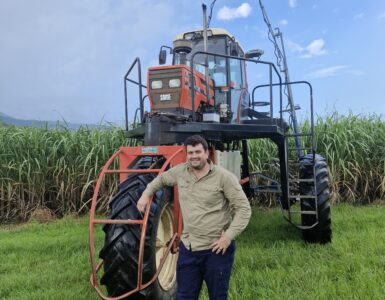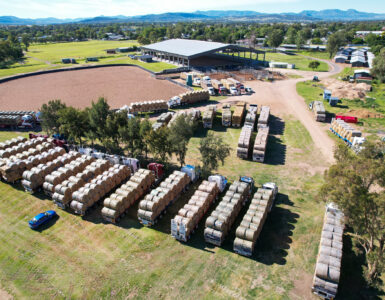The National Farmers Federation is reiterating its goal to halve food waste by 2030 on this year’s Stop Food Waste Day.
Stop Food Waste Day aims to bring awareness and reduce food waste on farms and in homes.
“In Australia, up to 25 percent of all vegetables produced do not leave the farm,” NFF President Fiona Simson said.
“This is a loss for farmers and the regional communities they support. Most importantly, it is quality food gone to waste that could be used to ease Australia’s food insecurity problem.”

Australians experiencing food insecurity increased to 28% in 2020 with a third of these people never experiencing food insecurity prior to COVID-19 with young people bearing the brunt.
“Often fruit and vegetables that do not meet specifications by retailers are cast aside not only losing foods that could help feed vulnerable Australians but hurting farmers who have spent resources to produce the crops,” Ms Simson said.

Food waste is estimated to cost the Australian economy an estimated $20 billion per annum.
“The National Food Waste Baseline puts food waste in primary production at nearly a third of all food waste in Australia or 2.27 million tonnes which would fill the MCG three times,” Stop Food Waste Australia Chief Executive Officer Dr Steven Lapidge said.
“Through the work of Stop Food Waste Australia, farmers will have the opportunity to work across the supply chain as we reduce food waste, increase food security, drive innovation, and improve the Australian food system’s productivity and resilience.”

Tackling the social and economic problems of food waste will require transforming food waste resources, reducing supply chain losses and engaging households and businesses to encourage behaviour changes.
One approach to addressing food waste is through transforming the way food waste resources are used on farms.
“Potentially, fruit and vegetables that are not fit for consumption or do not meet market standards could be used as profitable and usable products such as bioenergy source material or livestock feed,” Ms Simson said.
Other solutions could lie in providing a tax incentive for food donations, increasing access to food by vulnerable Australians.
“Increasing efficiencies at the farmgate is an ongoing challenging and requires meaningful action from the entire community,” Ms Simson said.
Find out more about how you can help cut food waste at StopFoodWasteDay.com







































Add comment